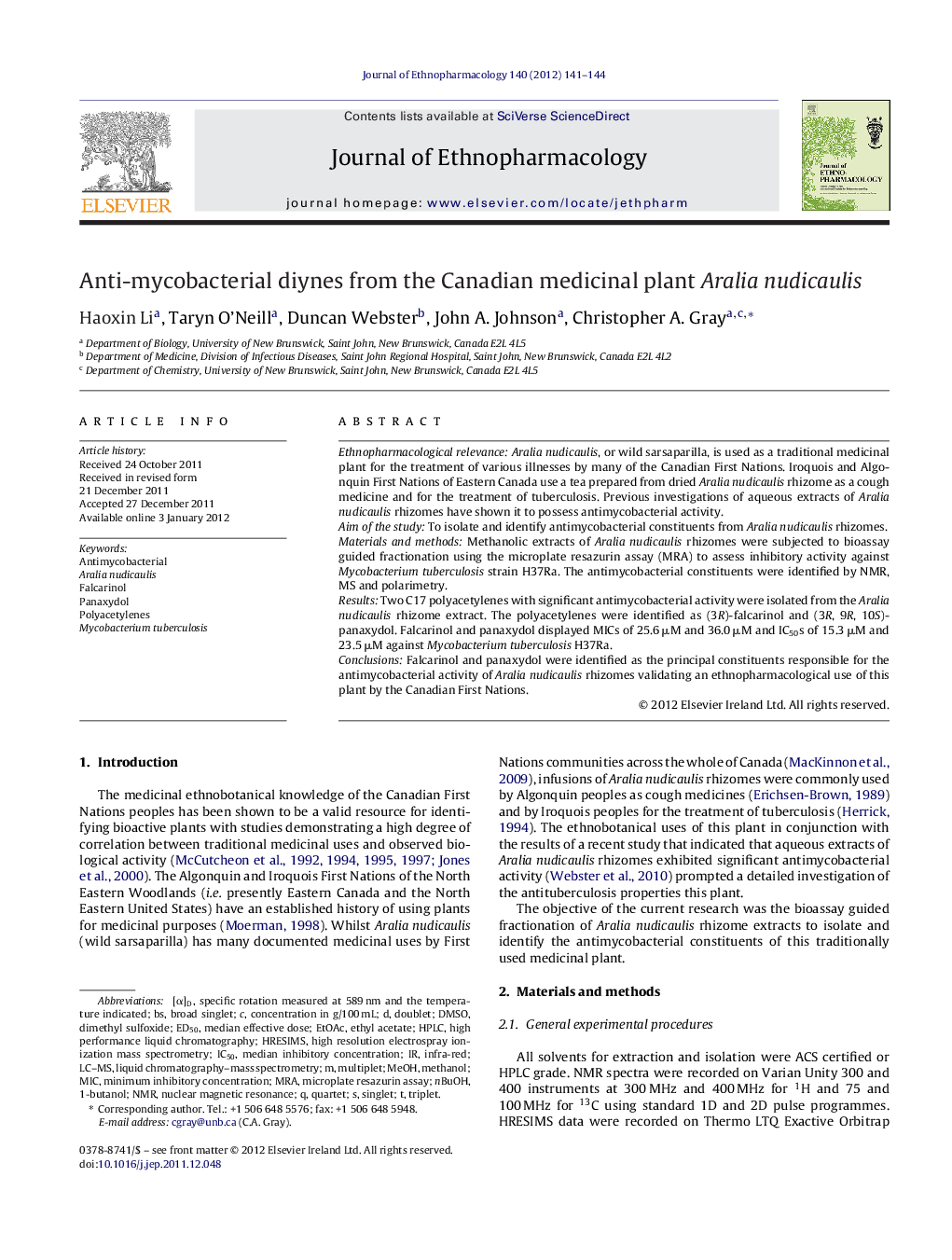| Article ID | Journal | Published Year | Pages | File Type |
|---|---|---|---|---|
| 5839283 | Journal of Ethnopharmacology | 2012 | 4 Pages |
Abstract
Ethnopharmacological relevanceAralia nudicaulis, or wild sarsaparilla, is used as a traditional medicinal plant for the treatment of various illnesses by many of the Canadian First Nations. Iroquois and Algonquin First Nations of Eastern Canada use a tea prepared from dried Aralia nudicaulis rhizome as a cough medicine and for the treatment of tuberculosis. Previous investigations of aqueous extracts of Aralia nudicaulis rhizomes have shown it to possess antimycobacterial activity.Aim of the studyTo isolate and identify antimycobacterial constituents from Aralia nudicaulis rhizomes.Materials and methodsMethanolic extracts of Aralia nudicaulis rhizomes were subjected to bioassay guided fractionation using the microplate resazurin assay (MRA) to assess inhibitory activity against Mycobacterium tuberculosis strain H37Ra. The antimycobacterial constituents were identified by NMR, MS and polarimetry.ResultsTwo C17 polyacetylenes with significant antimycobacterial activity were isolated from the Aralia nudicaulis rhizome extract. The polyacetylenes were identified as (3R)-falcarinol and (3R, 9R, 10S)-panaxydol. Falcarinol and panaxydol displayed MICs of 25.6 μM and 36.0 μM and IC50s of 15.3 μM and 23.5 μM against Mycobacterium tuberculosis H37Ra.ConclusionsFalcarinol and panaxydol were identified as the principal constituents responsible for the antimycobacterial activity of Aralia nudicaulis rhizomes validating an ethnopharmacological use of this plant by the Canadian First Nations.
Keywords
Panaxydolhigh resolution electrospray ionization mass spectrometryHRESIMSEtOAcMRAED50MICIC50nuclear magnetic resonance1-butanolDMSOLC–MSEthyl acetateNMRbroad singletMinimum inhibitory concentrationDoubletDimethyl sulfoxideTripletAntimycobacterialliquid chromatography–mass spectrometrymedian inhibitory concentrationFalcarinolInfra-redMycobacterium tuberculosisMethanolmedian effective doseMeOHPolyacetylenesmultipletQuartethigh performance liquid chromatographyHPLCSinglet
Related Topics
Health Sciences
Pharmacology, Toxicology and Pharmaceutical Science
Pharmacology
Authors
Haoxin Li, Taryn O'Neill, Duncan Webster, John A. Johnson, Christopher A. Gray,
